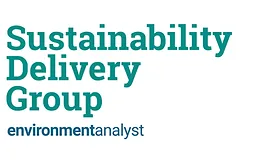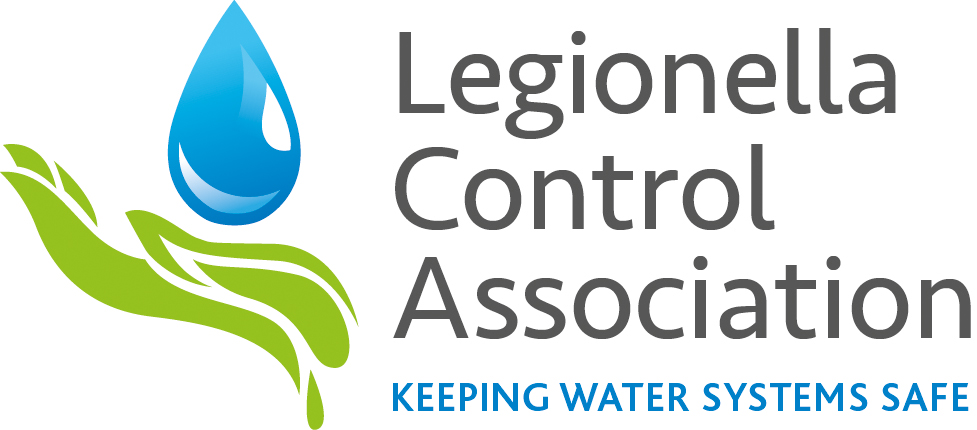Protecting people and planet
Protecting people and planet
Protecting people and planet
Protecting people and planet
Protecting people and planet
One Year On: Assessing the Kunming-Montreal Biodiversity Framework and the UK’s Commitment to Biodiversity Conservation

Lucion Group
16th November, 2023
December marks 1 year since the 2022 United Nations Biodiversity Conference, where the Kunming-Montreal Global Biodiversity Framework was adopted, a framework aimed at halting and reversing human-driven biodiversity loss by 2030.
What Is Biodiversity Loss?
Biodiversity loss is the decline in species diversity within a given area, which can lead to ecosystem dysfunction. It encompasses both reduced numbers of a species resulting in a loss of genetic diversity, or potentially local extinction, as well as the numbers of different species.
A Biological Reviews study published in May 2023 by John Wiley & Sons Ltd on behalf of Cambridge Philosophical Society, revealed widespread global erosion of species. A staggering 48% of all species on Earth are estimated to be in decline. The current extinction crisis, known as the Anthropocene extinction, is different from past extinctions. It's happening fast, and there are many more species disappearing than new ones appearing. Whilst these levels of extinction can’t all be attributed to climate change alone, they can largely be equated with human-driven biodiversity loss activities including; habitat loss and degradation, invasive species, overexploitation, pollution, and climate change associated with global warming.
Between the 7th - 19th December 2022 in Montreal, Canada, the 15th meeting of the Conference of the Parties to the Convention on Biological Diversity (COP 15) convened, uniting governments worldwide to establish fresh objectives for global action until 2030, aimed at stopping and reversing the biodiversity loss. COP 15, an international biodiversity conference held under the United Nations Convention on Biological Diversity (CBD), saw the adoption of the much anticipated Kunming-Montreal Global Biodiversity Framework.
The Kunming-Montreal Global Biodiversity Framework
Coined as the Global Biodiversity Framework (GBF), the Kunming-Montreal biodiversity agreement focuses on creating goals that help to realise the 2050 vision for Biodiversity;
“The vision of the Kunming-Montreal Global Biodiversity Framework is a world of living in harmony with nature where ‘by 2050, biodiversity is valued, conserved, restored and wisely used, maintaining ecosystem services, sustaining a healthy planet and delivering benefits essential for all people.’”
Convention on Biological Diversity, April 2023.
The Kunming-Montreal GBF outlined four long-term goals for 2050 related to the 2050 Vision for Biodiversity:
-
Preserve and enhance ecosystems, prevent species extinction, and protect genetic diversity by 2050.
-
Ensure sustainable use and management of biodiversity, value nature's contributions, and support sustainable development by 2050.
-
Promote fair and equitable sharing of benefits from genetic resources and traditional knowledge, with a focus on indigenous peoples, while safeguarding traditional knowledge.
-
Secure resources, including financial support and technology transfer, for biodiversity conservation, especially for developing countries, and close the $700 billion per year biodiversity finance gap while aligning with the global biodiversity framework by 2050.
To achieve these four objectives, the GBF developed 23 action-oriented global targets for 2030. The actions set out in each target need to be initiated immediately and completed by 2030.
In summary, the 23 goals are focused on three objectives;
- 1. Reducing threats to biodiversity
-
The first set of targets focuses on reducing threats to biodiversity, emphasising integrated planning, restoration of degraded ecosystems, effective conservation of key areas, prevention of species extinction, sustainable use of wild species, control of invasive alien species, pollution reduction, and mitigation of climate change and ocean acidification.
- 2. Meeting people's needs through sustainable use
-
The second set of targets aims to balance human needs with the sustainable use of biodiversity. It calls for promoting the sustainable management of wild species for the benefit of people, sustainable practices in agriculture, aquaculture, fisheries, and forestry, enhancing nature's contributions to human well-being, increasing green spaces in urban areas, and ensuring equitable benefit sharing from genetic resources and traditional knowledge.
- 3. Tools and solutions for implementation and mainstreaming
-
The third set of targets focuses on practical tools for implementing and mainstreaming biodiversity considerations. This includes integrating biodiversity into policies and regulations, encouraging businesses to disclose their impacts, promoting sustainable consumption, implementing biosafety measures, addressing harmful incentives, increasing financial resources, fostering technology transfer and innovation, making data and knowledge accessible, and ensuring representation and participation of diverse groups, including indigenous peoples and women while upholding gender equality. These targets collectively aim to guide global efforts to protect biodiversity and achieve a sustainable balance between human activities and the natural world.
The Time For Action Is Now
After two weeks of negotiations, 188 countries, including the UK, agreed on the 19th of December 2022 to take immediate action to achieve the '30 by 30' pledge, a pledge to protect 30% of land and water by 2030.
As a result, all countries must now implement the framework through domestic and international action. Before the 16th United Nations Biodiversity Conference in 2024, all countries have to prepare updated National Biodiversity Strategies and Action Plans and National Biodiversity Finance Strategies. So what has the UK achieved during the past year since COP15?
The UK’s Action On Biodiversity Loss
Over the past decade, the UK Government has introduced various policies and plans to support its biodiversity goals and international commitments.
In 2011, the Department for Environment, Food and Rural Affairs (DEFRA) published 'Biodiversity 2020' for England, aligning with international biodiversity targets set by the United Nations Convention on Biological Diversity (CBD).
In 2018, the government released the '25-Year Environment Plan,' outlining biodiversity and environmental goals for the UK. The Environment Act 2021, enacted provisions supporting environmental protection, including a nature recovery green paper in March 2022.
In September 2020, the government committed to safeguarding 30% of UK land by 2030 and endorsed the leaders' pledge for nature. Biodiversity is a devolved matter, but the UK government collaborates with devolved administrations on a unified approach.
Legislation like the Environment Act 2021 mandates environmental targets, including biodiversity and species abundance. DEFRA conducted a consultation on these targets from March to June 2022. Although the act required them to be published by October 31st, 2022, the government cited a substantial public response and volume of material as reasons for the delay. The Government stated that they remain committed to halting species decline by 2030, in line with the Kunming-Montreal Global Biodiversity Framework and plan to introduce a broader set of targets.
Nonetheless, in September 2023, UK Prime Minister Rishi Sunak unveiled intentions to either discard or postpone crucial elements of his administration's strategy for addressing climate change and biodiversity loss. These changes impact various aspects, including transportation, heating, energy efficiency, infrastructure, and carbon budgeting.
Furthermore, the government deferred the implementation of a vital green policy requiring built environment firms to achieve biodiversity net gain at their sites. Instead of taking effect later this year, it is now scheduled for January 2024. This decision came as a significant setback to numerous environmental groups and businesses that had promptly invested in altering their operations, products, and services.
The State of Nature Report released in late September 2023 revealed that;
“[In the UK] More than half of plant species have decreased in their distribution (54%) as have 59% of bryophytes (mosses and liverworts). The distribution of invertebrates in the UK has also decreased on average by 13% since 1970, however, there are much bigger declines in groups which provide important services such as pollination and crop pest control. The distributions of pollinator species, including bees, hoverflies and moths, have decreased by 18% on average, whilst those species providing pest control, such as the 2-spot Ladybird have declined by more than a third (34%).”
Whilst the Government has backpedalled many green policies, many of our clients are continuing to lead the charge on tackling biodiversity loss on their projects.
Case Study: Development of Nutrient Neutrality Strategy For Sustainability-Conscious Clients
Our client, an East Anglia housing provider with over 6,000 homes, approached Delta-Simons Limited with the task of developing a Nutrient Neutrality Strategy. The primary goal was to assess and quantify the potential for accommodating new residential developments without increasing nutrient loadings, which could harm environmentally sensitive areas.
- Our Approach
-
Employing our Geographic Information System (GIS) mapping, we conducted a comprehensive evaluation of water efficiency measures that could be retrofitted into the existing housing stock. These measures aimed to free up nutrient capacity, ultimately supporting the construction of new homes.
- Challenges Faced
-
We encountered challenges related to the conservation of wildlife in the UK, particularly around Special Areas of Conservation (SAC), Special Protection Areas (SPA), and Ramsar sites. These areas are crucial for their diverse habitats and protected species. The presence of elevated nitrogen and phosphorus levels, primarily from agricultural sources and existing housing wastewater, was leading to eutrophication, harming aquatic ecosystems.
- Our Solution
-
By implementing our Nutrient Neutrality Strategy, we found that retrofitting water efficiency measures in our client's existing housing could create additional nutrient capacity. This, in turn, allowed for the development of new residential properties without increasing nutrient loadings, preserving sensitive environmental areas.
We calculated the total water savings achieved by installing water efficiency measures in the existing housing stock, using both phosphorus and nitrogen offsetting methodologies. This calculation enabled us to determine the number of potential new developments that could be constructed for our residential developer client while safeguarding the environment from detrimental impacts.
Our Report Considered:
National Planning Policy Framework (NPPF) (2021, now 2023) National Planning Practice Guidance (NPPG) (2014)This case study demonstrates our teams’ commitment to finding sustainable solutions that allow for responsible residential development while protecting critical wildlife habitats and species in East Anglia.
- The Building Regulations 2010 – Sanitation, Hot Water Safety, and Water Efficiency (2015 edition)
However, protecting biodiversity is only one element to be considered when trying to create a positive impact for a sustainable future.
Biodiversity And Climate Change
There is a synergy between biodiversity and climate change. Biodiversity contributes to and enhances climate mitigation and adaptation while climate change can lead to degradation and loss of land and marine biodiversity. Whilst currently there is no official explicit link made between the UN Climate Change Conference and the UN Biodiversity Conference, it is crucial to recognise that human-induced climate change, biodiversity loss, and declining human well-being are interconnected crises that cannot be effectively addressed in isolation.
The health of ecosystems and biodiversity is essential for a safe and habitable climate, just as climate change profoundly affects the ecosystems we depend on. To address these crises effectively, we need to align our efforts regarding ambition, action speed, and resources at both international and national levels.
Whilst the 16th United Nations Biodiversity Conference (COP 16) isn’t set to take place until October 2024, the 28th UN Climate Change Conference (COP 28) will convene from 30th November to 12th December 2023 in Dubai, United Arab Emirates (UAE), bringing the world together at a critical moment for global transformative climate action. This is another opportunity for us to draw attention to the significance of action to reduce and halt further human-driven biodiversity loss.
The time for action is now. The world is watching, and the responsibility to safeguard our planet lies in the hands of every individual, community, and nation. Together, we can make a difference, and together, we can achieve the vision outlined in the Kunming-Montreal GBF - a world where biodiversity is cherished, conserved, restored, and wisely used, ensuring a healthy planet and benefits for all.
Take Action Now
Our team at Delta-Simons Ltd, a member of the Lucion Group, has extensive experience guiding developer clients through the intricacies of achieving nutrient neutrality. We specialise in preparing Sustainable Drainage Systems (SuDS) solutions to facilitate development and determining optimal site locations through our advanced GIS system.
Our team offers water quality testing and evaluates the environmental impact of development outflows, promptly addressing any issues that arise. Furthermore, the ecology team can undertake shadow Habitat Regulations Assessment screening and Appropriate Assessments of development proposals to determine whether or not there are any impact
pathways that would have a likely significant effect on the ‘National Site Network’ (previously Natura 2000, European conservation sites) either alone or in combination with other developments, proposing the necessary mitigation measures to ensure no adverse effect on the integrity of the National Site Network sites.
With a track record spanning three decades, we have collaborated with clients across various sectors, providing a comprehensive range of trusted environmental services and advice. Our solutions are designed to mitigate risks to both people and the environment, offering crucial support during investment and divestment cycles.
If you're seeking a holistic and environmentally conscious partner to realign your development goals, please don't hesitate to contact our team at info@luciongroup.com.
We're here to help you navigate and succeed in the evolving landscape of environmental compliance and sustainability.
Register for IMPACT Bulletin
Don’t miss a beat - get the latest insights and updates from Lucion straight to your inbox.























